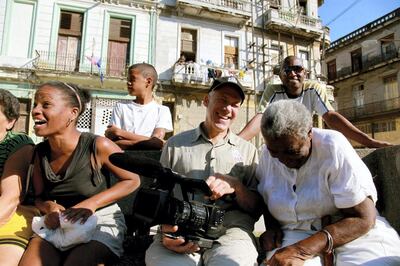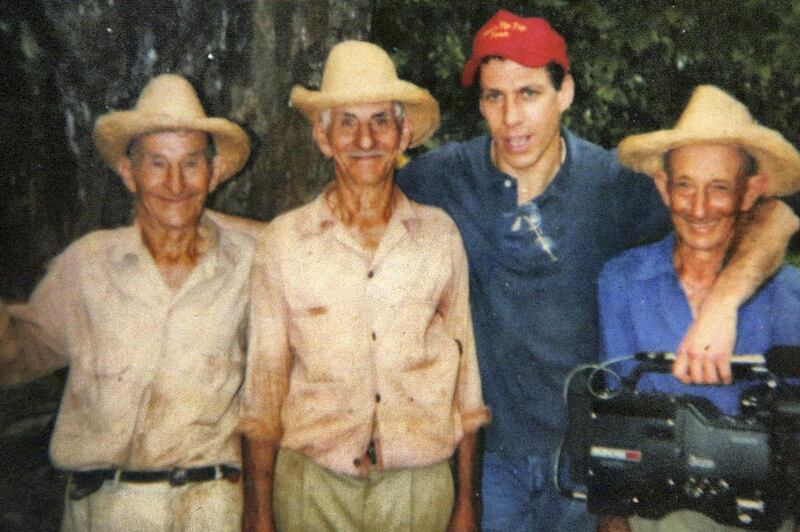The death of Fidel Castro last year signalled to veteran New York filmmaker Jon Alpert that it was time to collate the footage that he's been shooting on and off in Cuba since 1974.
The result is Cuba and the Cameraman, which is part historical record. Alpert was one of the few international journalists with access to El Comandante Castro, but mostly it's an affectionate personal diary in which he invites us to meet his Cuban friends who he would go and visit every few years.
These include three farming brothers and their sister, who will fill your hearts with joy and sadness, a young mother and an ex-convict. Together, their stories give a picture of the country from the boom years when the island economy was being subsidised by the Soviet Union, to the special period in the 90s when poverty was rife after the collapse of the superpower to the present economic upturn fuelled by tourism.
A multiple Emmy award winner and two-time Oscar nominee (for short documentary film), Alpert has always been socially conscious. In 1972, he co-founded Manhattan’s Downtown Community Television Centre and this whimsical documentary begins by showing how New York workers were being exploited in sweatshops in the East Village, which stoked his interest in going to Cuba.

"We were fighting back in those days with every tool to make our country better than it was," Alpert says the day after the film had its world premiere at the Venice Film Festival. "New York was a mess. I was a taxi driver and we were horribly exploited, it was a terrible and dangerous job, more dangerous than coal mining, every three weeks a driver was being shot."
In his taxi he would hear stories about Cuba: “I heard people say that there was an extraordinary story going on in Cuba, while those in exile would tell me that it’s a horrible prison state. It was an extraordinary contradiction. We were young and didn’t take anybody’s word for it, we wanted to see for ourselves.”
In Cuba, he started by making news reports. They were followed and given minders and drivers for when they were shooting footage and always had to seek permission before calling action. It was when Alpert finally got sick of the licensing that he went out and met the locals who tell their stories in his film.
The first time Alpert met Castro he was lost for words. “I was so young and inexperienced and frightened that when Fidel came over to talk to me, I was speechless in a way that I was humiliated.”
From such inauspicious beginnings he earned Castro's trust, so much so that when Castro went to New York in 1979 to make a speech at the United Nations Alpert was on the plane with the delegation, capturing the moment that homeland security came on to check passports. Castro is incredulous.
Alpert believes that the Cuban leader took a liking to him because, “I treated Fidel like I would anybody and I’m not sure Fidel had experienced something like that for a long time as everyone was so differential”.
He was invited to see Castro in the months before he died, by which time Cuba had changed from the country he first visited. The move to a tourist economy is one that doesn't sit well with the filmmaker: "I'm conflicted by the fact that the country relies completely on tourism," he says. "The fact that so many people in so many different professions are not practising their professions at all and are basically doing jobs in the service economy. I think it's a tragedy."
Cuba and the Cameraman is on Netflix from November 24
______________________
Read more:
[ Hugo Weaving revels in role as the unravelling psychiatrist in Seven Types of Ambiguity ]
[ Will Beyoncé roar in live-action remake of The Lion King? ]
[ Ridley Scott dramatically cuts Kevin Spacey from completed movie ]
______________________






